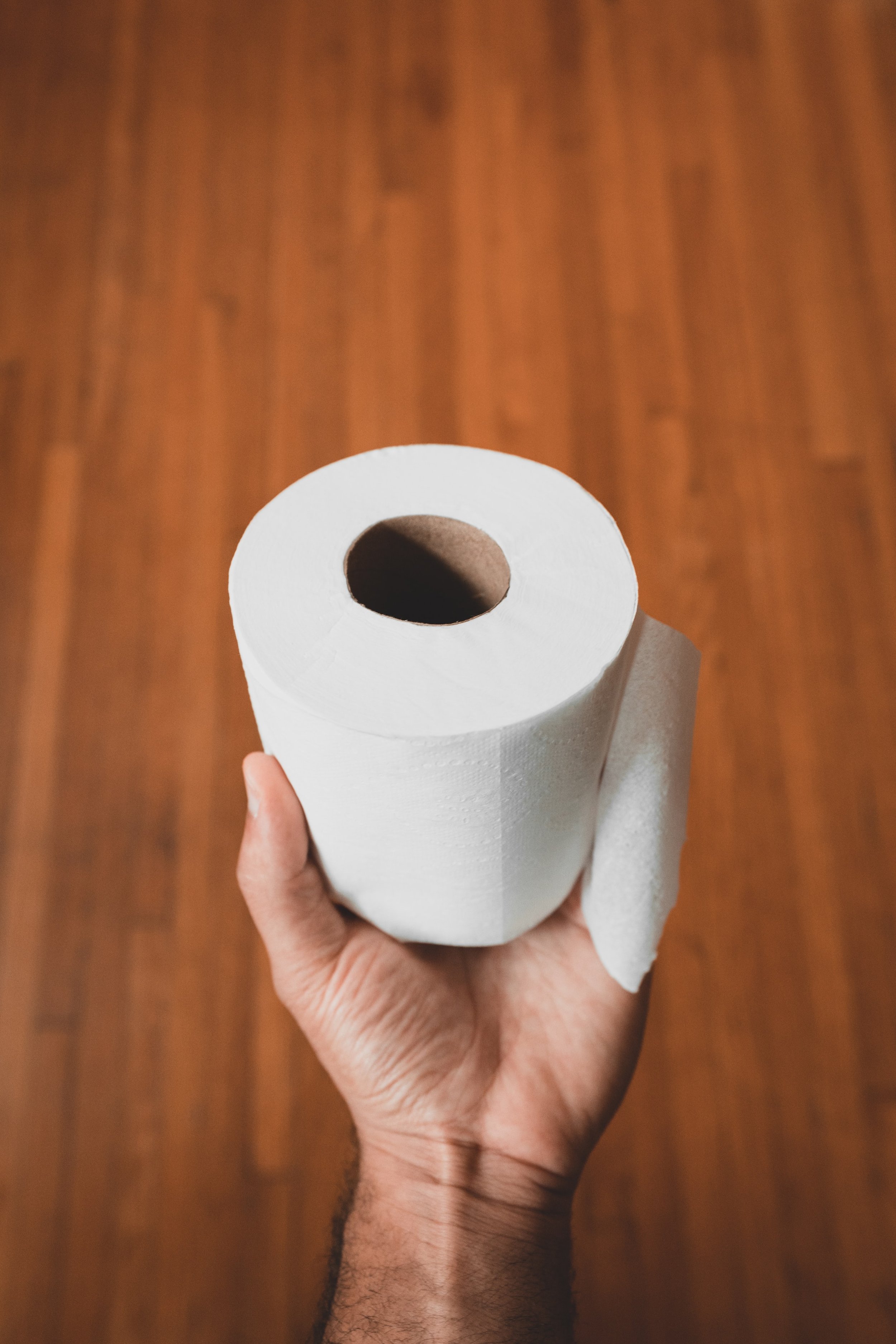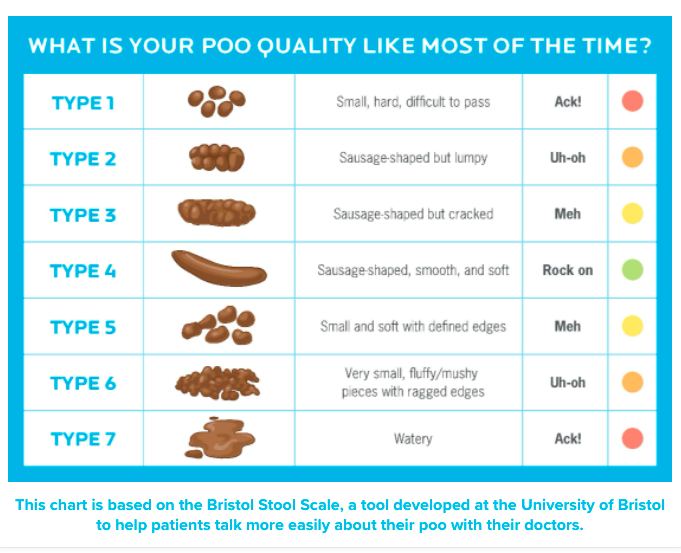WAYS YOU CAN IMPROVE YOUR GUT HEALTH
We get a lot of questions about health, from fitness and keeping your body moving, to diet and your digestive system.
What is gut health? What is this thing we call the microbiome? What can we do to take care of our gut health if it’s actually as important as the world is saying it is?
Our gut health plays a really important role in our overall health. One might think that gut health concerns only our bowel movements, belly aches, bloating, irritable bowel, and gas - but we’re here to inform you that gut health impacts more than just your gut. Your mental health, so to speak, is impacted by your gut health along with a fair amount of other things.
Gut health, whether you totally understand it or not, is something that we all can strive to get on track. It’s not always easy and it's extremely hard to be consistent - but it's worth it. So, whether you have great gut health (kudos to you) or you’ve got some work to do - just know that you’re okay.
You are going to be okay.
There are always things we could be doing to improve our gut health. If you are on a journey of imporiving yours, the most important thing to remember is not to get discouraged if you don’t see/feel results as quickly as you would like - these things take time and what works for someone else may not work best for you.
How can you say goodbye to embarrassing gut issues and jump back into life without fearing you might fart in front of your friends, or worse - have to run to the bathroom for an emergency poo in an awkwardly quiet house?
How can you have energy after eating instead of feeling lethargic after a so-called ‘healthy’ meal?
No one likes to panic in public places with embarrassing poos, smelly farts (the famous SBD), or pants that are way too tight because apparently, their stomach grew three sizes thanks to bloating.
Let's talk about improving your gut health, shall we?
What is the gut? What is the microbiome? Is bacteria really a good thing?
Your gut, also known as your gastrointestinal tract, runs from your mouth to your anus. Yep, I just said anus.
It’s a series of organs - which include your mouth, esophagus, stomach, small intestine, large intestine, and anus.
First, you eat food, and then your whole gastrointestinal tract has the job of breaking down all that food and make use of it in the most efficient way - discarding the waste that is not necessary to your body. A pretty vast system that does a whole heck of a lot, am I right? It should make more sense now why it's so important that you take care of it. Your gut is a very large part of your body. Your intestines alone span over seven meters (which is hard to believe that you have seven meters of anything all scrunched up in there, but you do) and they have very important jobs. Jobs, that no other organ is responsible for.
Researchers estimate that between 10–100 trillion microorganisms live in your gut alone. You may be thinking that bacteria and microorganisms sound like bad things to be made up of, but lucky for you - the bacteria that live inside of you are actually good - and you need them! Good bacteria can build your immune system, regulate appetite, and tackle stress. Your good bacteria also keep you regular - and having healthy-looking poops and pooping regularly (and effortlessly) is very important!
Your microbiome is also made up of potentially risky bacteria as well, which can result in all sorts of side effects and illnesses, but mostly your microbiome is made up of a healthy balance of good and bad bacteria.
Whether we consider the ‘good’ bacteria, think of it as a mutually beneficial relationship. You’re taking care of the bacteria by giving it fuel and a home to live in and they’re taking care of you (good). The ‘bad’ bacteria unfortunately is not a mutually beneficial relationship if it starts to take over - you’re giving it a home to live in, but it starts to make you ill.
Your microbiome is as unique to you as your fingerprint is. No two people have the same microbiome. Your microbiome also changes as you go through life. The things you do, the things you eat, the medications you take, the stress you encounter, the alcohol you drink (or don’t drink), the places you go, the animals you interact with, your age, and many other things play an important part in your microbiome.
The goal is to figure out a healthy balance of bacteria in your gut.
YOUR gut.
How you do that is going to be different from how I do this because our microbiome is different. It's understandable that this is a broad goal and that figuring out how to balance yours is hard because there is no one way. How frustrating?
There are a few steps you can take though to do your best. And you should, because taking care of this part of you will indirectly take care of other parts of you, too!
What can I do to develop and maintain a healthy microbiome in my gastrointestinal tract?
CHEW YOUR FOOD!! Seems simple enough, doesn’t it?
Next time you eat, take note of how much you chew your food before you swallow. Chances are you’ve heard that you’re supposed to chew thirty-two times before you swallow. That may seem like a lot, and honestly, maybe it is. More importantly than making sure you chew for a certain amount of time, just focus on chewing your food long enough for it to lose its texture (into the texture of applesauce, or as close to it as you can stomach).
If you’re not chewing your food enough before swallowing you’re actually not going to absorb as many nutrients as you would if you were to chew properly. Poor digestion, poor absorption of vitamins and minerals, and likely - poor gut health.
Now, I’m not here to say that because you’re not chewing your food long enough you’ve got gut issues - but it does play a part.
When you’re eating, slow down. Sit down, slow down, taste your food, and make sure you’re not swallowing hunks of whatever it is that's on your plate. Do your digestive system a huge favor and really start the process in the mouth - where it's supposed to start.
LESS PROCESSED FOODS AND MORE VARIETY!! Should be no surprise to you all, but processed foods are not the greatest for you, which is not to say that you can’t have them (you absolutely can) but maybe consider having less, and opting for whole, fresh foods instead whenever possible.
Variety is key as well.
You don’t want to always eat the same lettuce and the same apple, you want to eat different types as often as you can.
Why? Different foods (even different types of a certain food - gala vs pink lady, iceberg vs romaine) contain different fiber structures which then feed the different bacteria in your gut. The more types of bacteria in your gut (the good ones), the better you’ll microbiome will be in the long run.
Think of your gut microbiome as a bunch of creatures in the rainforest (full transparency, this is not my analogy). Each creature has its own job, and there are thousands of jobs that need to be done in order for the whole ecosystem to thrive. Your gut is the same. Different bacterias have different jobs and the key to a healthy gut is to have a diverse system of bacteria all doing their different jobs.
If you’re the type of person who eats the same thing, day in and day out, chances are that your gut is actually in need of a little bit of diversity. Sure, you can be eating the ‘healthiest’ meals, but you’re missing out on the opportunity to best serve your microbiome.
The best way to do this is to eat all sorts of fresh vegetables and fruits. Plants are literally your best friend when it comes to your microbiome and there is no harm in consuming as many different types as possible. The idea is to (I know this sounds bizarre, but I heard it from a health guru) consume up to 30 different sources of plants per week. When trying to find what you’re going to eat - as we always say here at Dunnebells, try eating the rainbow. Gather fruits and veggies of all different colors, and you’ll be good to go!
FERMENTED FOODS!! Things such as sauerkraut, kimchi, and kombucha have been said to be the key to a healthy gut. However, science hasn’t been able to actually prove these claims in terms of your microbiome.
Adding fermented foods into your diet is still a great idea though - they add to your microbiome in ways, but they aren’t as ‘god-send’ as maybe people have claimed they are - according to science.
However, science can prove that kefir and certain yogurts, do contain good, beneficial bacteria. If you are to consume kefir on a regular basis, you are building up a store of new healthy bacteria inside of your microbiome. YAY DIVERSITY!
One of the benefits of these new bacteria is that they help create metabolites which are a food source for your good bacteria and an energy source for your gut itself - as well they help to compete against potentially harmful bacteria in the gut. Kefir gets two thumbs up if you’re looking for a fermented food that is going to directly impact your gut. Most people enjoy kefir smoothies but feel free to experiment and find ways that work for you.
Science is mind-blowing, isn’t it? I’m not an expert (I feel like I say this in EVERY blog post in order to make sure you don’t think I have all the answers) but I feel like even I’m learning new things. I did think, before all my research, that fermented foods were going to be the answer. I’ve consumed kombucha without enjoying it for years thinking it was going to my golden ticket to a healthy gut.
However, I’m learning that even though fermented foods ARE great for me, they aren’t going to solve all my gut issues.
BE PROACTIVE IF YOU’RE TAKING ANTIBIOTICS!! There are a bajillion reasons why your doctor may put you on antibiotics. If you are on them or need to go on them, or what have you - please make note that antibiotics are terrible for your gut health.
It’s no fault on their own, antibiotics have a very specific job (which they perform REALLY WELL) but adding to, or maintaining a healthy microbiome is not one of them.
Antibiotics = bad bacteria and less microbial diversity! A five-day run of antibiotics can, in some cases, wipe out over half of your microbiome, and sometimes you may never gain back certain healthy bacteria that you had before your run of antibiotics.
What you can do, if you’re going to be on antibiotics, is plan ahead. You’ll need to set your gut up for success as well as rebalance your gut after your antibiotics are complete.
But how?
Prebiotics and probiotics! And, for the sake of keeping things easy - eat some kefir or yogurt to help build up your reserve of healthy bacteria. If you’re wanting to supplement because you know that antibiotics really affect you and you’re left with explosive poos and a sore tummy, Lactobacillus rhamnosus and Saccharomyces boulardii are two probiotics that seem to come up a lot when talking about antibiotic effects on your microbiome.
Obviously, not all probiotics are needed, or even recommended to all people. There are certain times you may need them and times when they’re not required. Doing your own research and talking to your doctor is of utmost importance - because GUESS WHAT? I’m just some girl that writes a blog about things that maybe you’ll find interesting. Your doctor knows best, and if they're prescribing you antibiotics, they can likely help you find ways to keep your gut health in check at the same time.
MOVE YOUR BODY!! Are you shocked? This is a fitness blog, you know?
Of course, we’re going to tell you that moving your body is going to be one of the answers to all life's problems. Moving your body is great for so many reasons, and in this case, it's phenomenal, because it helps to reduce stress, and stress, is a BIG no-no for your gut health. The less stress, the better your gut health.
Movement is also associated with a larger diversity in your microbiome, and if you remember from a few points ago - diversity is key!
Regular movement also helps you poop better and although this is not a blog about poop, poop is important.
My grandpa used to tell me, and I’m a little sidetracked now, but he always used to say: “If you don't eat you don’t poop (except he used the s-word) and if you don’t poop, you die”.
He was a smart man, I tell you. And now that I’ve got you here still reading about poop - I encourage you to check out this image on poops and if you’re not someone whos grossed out by poops, I also suggest you read the following article (the same article I’ve gotten this image from) about the importance of the shape and consistency of your poop and how it tells you a WHOLE lot about your health by CLICKING HERE.
NOTHING ELSE FANCY!! I know that sometimes it’s easier to have someone give advice that really seems elaborate and comes in the form of a miracle.
However, when it comes to your gut health, unfortunately (except, not at all unfortunate) all it takes is a handful of simple things done consistently over time - the answer nobody ever really wants to hear.
If you want to improve your gut health the fact of the matter is this: you already have the tools available to you to do so. The trouble isn’t about knowing what you should do, instead, it’s actually doing what you know to be true. It’s not easy, and I’ll be the first to admit that it’s not always pretty either. Sometimes it seems like you’re doing everything you’ve been told and still nothing changes. However, consistency is key.
Keep trying.
Insert new foods into your diet. Explore new movements. Consume a whack-load of different vegetables instead of only the ones you’re used to. Drink enough water, every day, not just the days you feel crappy. And please, for the love, chew your food (with your mouth closed to be polite).
Be mindful about what you’re eating. Practice gratitude for the fresh foods that you do have and really try to enjoy them. There is no need to shove food down like you’re never getting another meal (unless you’re not sure you are - which in that case, please reach out and we can help).
Practice gratitude for yourself as well, because if you’re even thinking about better gut health, you’re on the right track. Often people just pass off their gut issues as normal things - gas, bloating, bad poos, and constant stomach aches after eating are not normal. You do not have to live with that. Instead, try some of these things and if it doesn’t get better over time - reach out to a professional.
I had really bad gut health for a while without ever knowing it. I ended up in the hospital numerous times, knowing something was wrong but not being able to explain it correctly. It wasn’t until I went to a naturopath that she was able to get me back on track, and knowing what I know now, gut health is truly one of the most important things.
When it's good, it's great.
However, when it's not? It can be the worst thing to deal with and you do not deserve that sort of life.
A great, pain-free, happy pooping life is available to you and I hope that you find it sooner rather than later.



